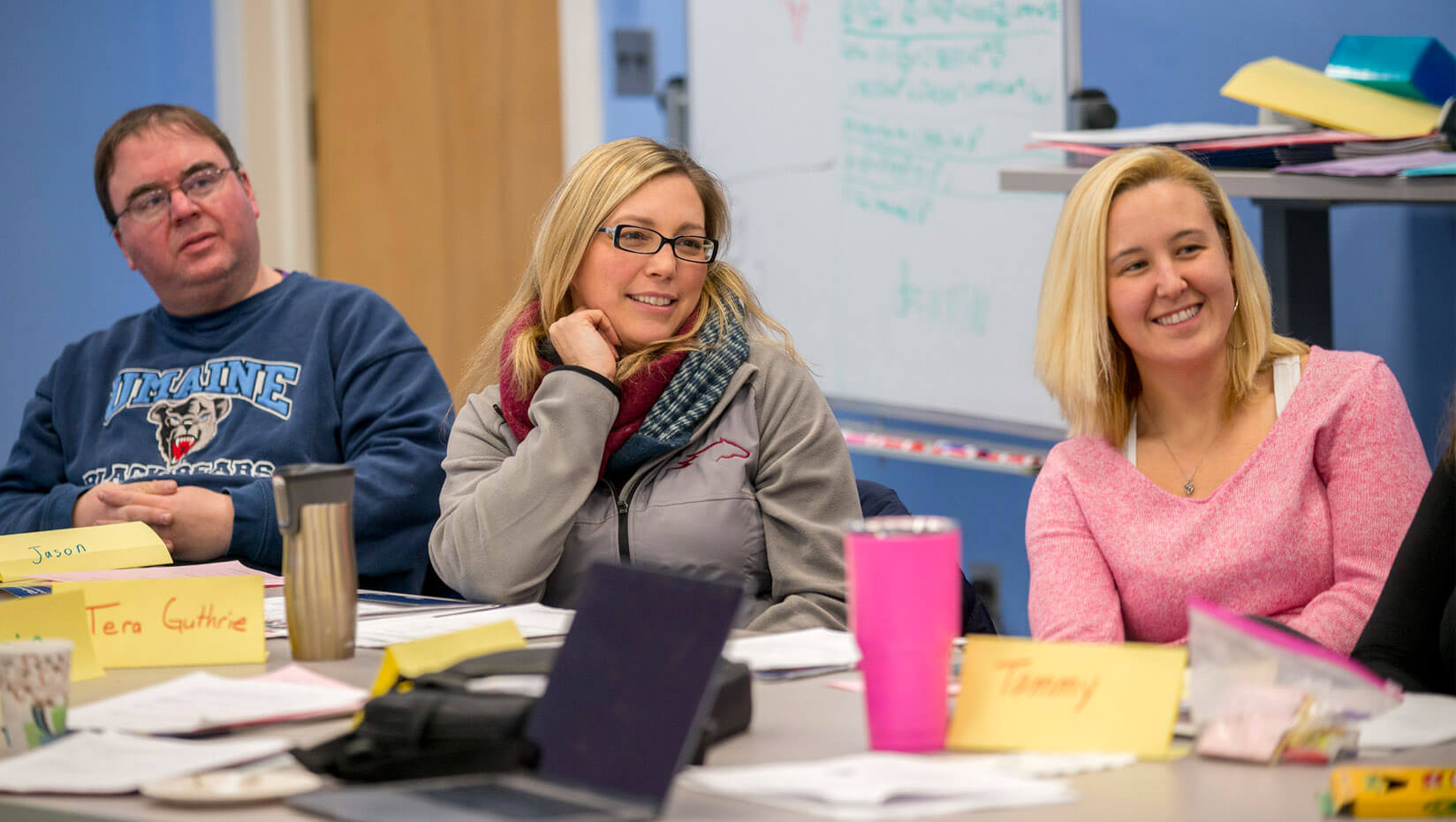
UMaine professors advance framework for developing socially conscious teacher leaders
In order to develop teacher leaders in preK–12 schools, three University of Maine faculty members suggest a career-spanning framework that emphasizes continuous inquiry, social justice, and an expanded notion of teachers’ roles in schools, communities and society.
Rebecca Buchanan, Tammy Mills and Evan Mooney — faculty members in the College of Education and Human Development’s School of Learning and Teaching — outline their ideas in an article published recently in the journal Professional Development in Education.
While acknowledging that theirs is one among many possible frameworks, Buchanan, Mills and Mooney argue that developing teacher leaders should be viewed as more than a linear process where educators with more experience are given more responsibilities. Nor should teacher leadership necessarily be seen as a stepping-stone to being a school administrator. Rather, they say their “proposed framework views teacher leadership as an avenue for rethinking the entire profession as interacting with myriad shaping forces and with the ability to enact equity and justice at multiple levels.”
The first part of their framework is to develop a “critical inquiry stance,” which the authors define as “having an open mind and a questioning, curious attitude towards the familiar contexts in which teachers find themselves.” To encourage this stance, Buchanan, Mills and Mooney say teacher education programs should give teachers tools that they can use throughout their careers to ask critical questions and participate in “difficult, but necessary, discussions and counternarratives.”
An emphasis on social justice — the second aspect of the framework — is closely related to a critical inquiry stance. “In other words,” Buchanan, Mills and Mooney write, “teachers who engage with an inquiry stance conduct a critical analysis of their context and pledge to disrupt the status quo and move towards social transformation.” Again, the authors say teacher education programs play an important role in developing the capacity for teachers to be socially transformative leaders.
Ultimately, Buchanan, Mills and Mooney’s framework rests on the idea that this emphasis on inquiry and social justice can help classroom teachers cultivate a set of beliefs and practices that allows them to develop into socially conscious leaders, not just in schools, but in their communities and society at large.
“Teacher’s beliefs and practices are intertwined and inform each other,” they write. “As teachers engage in new practices, they reconsider their previous beliefs, which — in turn — shapes future practices.”
After sketching their framework, Buchanan, Mills and Mooney offer examples of how it works in practice through a case study drawing on their work at UMaine. The case study is broken down into the different stages of a teacher’s career: preservice/novice; novice/mid-career; and mid/late career.
“In order for teachers to develop leadership capacities, these skills must be honed, practiced and supported across contexts,” they write.
The authors point to partnerships between local schools and university-based teacher education programs as a good example of the kind of work that can help all teachers gain leadership skills. Although such collaborations can create challenges of their own, Buchanan, Mills and Mooney write that they also “offer a unique set of opportunities to support the development of teacher leadership across the career span.”
“Ideally, these partnerships would extend beyond the university-school relationship to also include relevant community organizations,” they say.
The article, “Working across time and space: developing a framework for teacher leadership throughout a teaching career,” is available online.
Contact: Casey Kelly, casey.kelly@maine.edu
